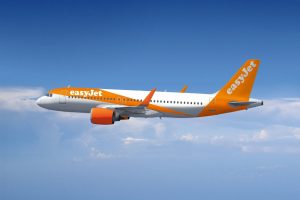Duckers & Diving: Tales of derring-do

THIS week our award-winning columnist uncovers a tale or two of military derring-do and discovers how the exploits of the grandfather and uncle of one of Birmingham’s leading business figures played a key role in Britain’s war effort.
Now I know from where Nick Venning, chairman of St Basils Fundraising & External Relations, gets his organisational ability.
He has always run these charity yomps he puts on with military efficiency; now it turns out he is from distinguished military stock.
His grandfather was General Sir Walter King Venning, who won the Military Cross and was one of the heroes of Dunkirk.
His uncle was Major Walter Venning, who Nick describes as a “very colourful character but (clearly) not such a successful soldier”.
Incorrect.
He won the DSO for gallantry in the Far East in World War II.
Sir Walter was a soldier from 1901 to 1946 and during World War I was Deputy Assistant Adjutant General at the General Headquarters for the British Expeditionary Force and then Assistant Adjutant General at the War Office.
After a spell in India where he was commander of the 2nd (Rawalpindi) Infantry Brigade, he became Quartermaster-General to the Forces from 1939 to 1942, presumably blamed by the troops for a constant diet of bully beef.
But the whole country was grateful when he played a major role in despatching the fleet to Dunkirk in 1940 to evacuate our troops from out of Hitler’s grasp.
Sadly a life dismissed in this Google age crammed between various web sites for vending machines!
Major Walter served in the Indian cavalry on the North West Frontier, and won a DSO in Java.
“He used to keep a Beretta at home that he told me he acquired from a Japanese officer in Burma,” recalls Nick. “When I asked him why a Jap officer should have such an unusual weapon, he looked at me somewhat coldly and said: ‘I don’t know my boy, I didn’t have time to ask him’!”
And the Beretta connection is all true.
In November 1945 Major Walter accompanied the 1st Battalion, 3rd Madras Regiment, to Java as second-in-command and later commanding officer. Four months earlier, after the Japanese surrendered, a group of Indonesian nationalists had proclaimed their independence from Dutch rule.
The withdrawal of Japanese troops to their barracks led to a widespread breakdown of law and order, and the Allies became particularly concerned about the thousands of PoWs and civilian internees who were at risk from the increasing violence.
Venning’s battalion disembarked at Surabaya, east Java, and, after three weeks of bitter street fighting, the city and port were secured. However sporadic resistance continued in the suburbs and surrounding villages for several months.
One morning, the battalion was clearing an area of insurgents when it was halted at a river where the bridge had been blown up.
While the engineers set to work to build a Bailey bridge, Venning arrived on a Sherman tank to control the operation and to provide covering fire.
The action was described thus in his 2004 obituary – he lived to be 91.
“A tall, lean, sandy-haired figure, stripped to the waist with a beret on his head, a Beretta in one hand and a golf iron in the other, he was sitting astride the gun barrel.
“As the Indonesians opened fire, the crew slammed down their hatches while others made a dive for the nearest ditch. Venning never moved, but continued to urge the tank forward like a steeple-chaser approaching a water jump.”
The battalion lost 22 men killed and 52 wounded in the Java operation; 608 of the insurgents were counted killed and a large amount of weapons captured.
Venning, who was unscathed, was awarded the DSO – second only to the Victoria Cross – for his bravery.
I suspect both men might just have viewed this year’s 26 mile St Basils Annual Walking Challenge around Great Malvern on June 9 as a stroll in the park.









